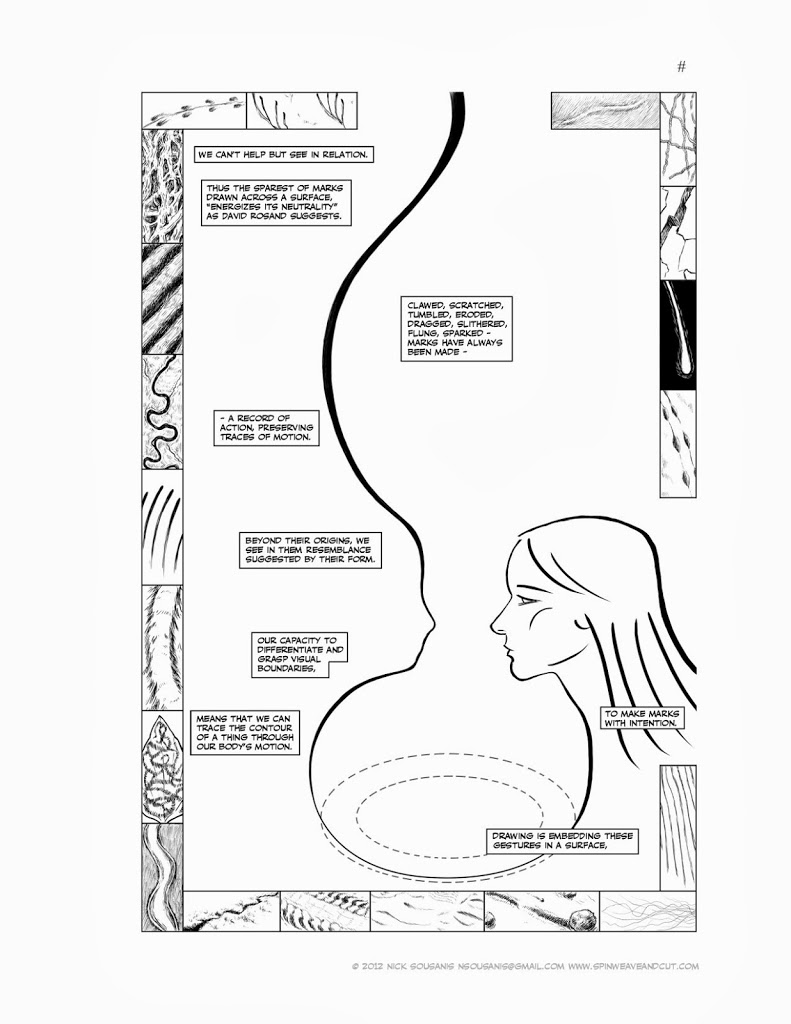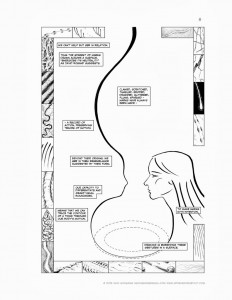Another minimalist page, part of a five-page sequence segueing from my pages on perception (one of which I put up here) to talking about how drawing works. As mentioned last time, I’ll be sharing shorter excerpts going forward as I race to get this finished by spring! This page came out of thinking about the origins of drawing, that we we first recognized images in naturally made marks before making them with intention. As Ernest Gombrich said in Art and Illusion – “Making comes before matching.” The border images are all various tracks and marks – my mom helped me out by finding images from books about animal tracks – and some of those shown here come from A Field Guide to Animal Tracks by Olaus J. Murie, Tracks and Trailcraft by Ellsworth Jaeger, and A Guide to Animal Tracking and Behavior by Donald and Lillian Stokes. Images depicted include mouse in the snow, turtle in sand, bear claw swipe, turkey wing impressions, earth worm trails, rolling rocks, rivers and more. Fertile terrain to revisit – Da Vinci advised artists to look to clouds, stains, and cracks in the wall for inspiration (which I mentioned in my piece on sketching here) and that rings true with looking at marks.
The rest of the sequence (not pictured) drew on works including Rudolf Arnheim’s classic Art and Visual Perception, books on metaphor and embodied thinking by George Lakoff, Mark Johnson, and Rafael Núñez, and Molly Bang’s Picture This – which I can’t recommend highly enough. A wonderful book on how pictures work made entirely of cutouts and constructing a scene from Little Red Riding Hood. I use it in my teaching all the time, and it’s at the heart of an exercise I do about drawing for non-drawers. (You can see some participant drawings from the exercise and if you’re patient, I describe it in my talk at Microsoft – all available at this post.)
Onward! – Nick



